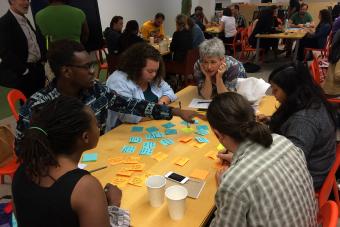Public Interest Design emerged out a call for the design professions to directly respond to the needs of under-resourced communities. Specifically, Public Interest Design attempts to raise the question of equity within the design professions and the extent to which the design professions apply expertise to issues of everyday life.
Students in the School of Architecture have multiple avenues through which they can develop the theoretical and practical skills to respond to the ethical complications of engaging the public and its spaces.
GULF COAST DESIGNLAB
Led by Professor of Practice Coleman Coker, The Gulf Coast DesignLab is a long-running ecologically-based program that fosters environmental activism within the field of design and for the public. Through the Gulf Coast DesignLab’s hands-on approach to civic engagement, students partner with nonprofits and governmental agencies to promote environmental justice through education. For over ten years, students have designed and built places for the public, where community partners can advance ecological literacy and promote environmental stewardship practices.
DESIGN FUTURES STUDENT LEADERSHIP FORUM
The Design Futures Public Interest Design Student Leadership Forum is a five-day, interdisciplinary forum that brings student leaders together from across the country to engage in the idea of using design as a tool for positive social change in under-resourced communities. The UT School of Architecture has been involved with the forum since it began in 2013, and students have represented the school each year. One of the primary aims of the forum is to create critically-needed design education spaces by bringing together students, faculty, and practitioners to learn and advance community-based design practice.
RELATED
STACKABLE CERTIFICATE: ENVIRONMENTAL EQUITY DESIGN

